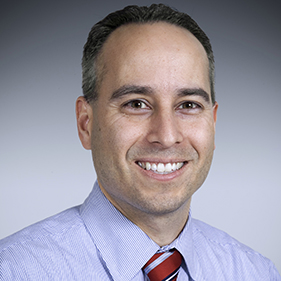STARS offers specialized telehealth services to kids with disabilities in rural areas
UC Davis tele-physiatry program provides high quality care to children with special healthcare needs in underserved communities
Children with neurological or musculoskeletal conditions need unique medical care and therapy that is often not available in rural areas. Physiatrists, who are physicians with expertise in caring for people with physical disabilities, are few and generally concentrated in urban academic medical centers.
To provide better access to physiatry care, UC Davis Health designed and implemented the School-Based Tele-Physiatry Assistance for Rehabilitative and Therapeutic Services (STARS) program. Using telemedicine, STARS brings subspecialty care to kids in rural and underserved communities.

A recent study, published in the Archives of Physical Medicine and Rehabilitation, found that this tele-physiatry program can provide parents and providers with the same perceived quality of care as in-person encounters. It is also more economical, offering a savings of about $100 per visit.
“Access to specialty medical care for children with special health care needs is essential,” said Loren Davidson, clinical professor at UC Davis Department of Physical Medicine and Rehabilitation and the senior author of the study. “Telemedicine programs like STARS allow physiatrists to serve patients in rural areas without sacrificing quality and doctor-patient interaction.”
Telehealth provides high satisfaction and saves time and travel costs
The study assessed parent and therapist experience and the perceived quality of care. It also evaluated cost savings associated with the tele-physiatry program compared to in-person physiatrist visits.
The researchers examined 124 telemedicine and 144 in-person visits for 200 patients at four school-based clinics in Northern California. The patients were children (the average age was 11 years old) from diverse racial and ethnic backgrounds. Around two-thirds of them had a diagnosis of cerebral palsy.
During patient telehealth visits, the physiatrist conducted the care remotely with the help of an in-person therapist. The study included 268 surveys by nine physical therapists and two occupational therapists, as well as surveys from 118 parents.
Telemedicine programs like STARS allow physiatrists to serve patients in rural areas without sacrificing quality and doctor-patient interaction.—Loren Davidson
The study found that family and therapist satisfaction with telemedicine was equal to in-person visits. The vast majority of the parents were highly satisfied with the visit, regardless of how the physiatrist delivered the services – in-person or via telemedicine. In fact, close to 29% of the parents preferred a telemedicine visit, 16% preferred a physiatrist in-person, and 55% expressed no preference.
On average, costs were $100 higher for in-person clinics, mainly due to physician mileage reimbursement.
“Telehealth saves time and travel costs for both families and physicians,” said James Marcin, professor in the Department of Pediatrics, director of the UC Davis Center for Health and Technology and principal investigator of the study. “UC Davis Health is a telehealth pioneer, bringing expert care to underserved communities across all of Northern California. The use of telehealth can help address the distance barrier for families and children living in rural communities.”
About the STARS program
The STARS program was funded by a $2 million, five-year grant from the Agency for Healthcare Research and Quality (AHRQ).
STARS serves children who receive support through California Children’s Services’ Medical Therapy Program. It provides children with cerebral palsy, spina bifida, spinal cord injuries and other physical disabilities access to UC Davis Physical Medicine and Rehabilitation physicians, in addition to physical therapy, occupational therapy, and durable medical equipment at designated school-based Medical Therapy Units.
The STARS program is a collaboration of the UC Davis Pediatric Telemedicine Program, the UC Davis Department of Pediatrics, the UC Davis Department of Physical Medicine and Rehabilitation, the UC Davis Center for Healthcare Policy and Research and Shriners Hospitals for Children - Northern California.
Co-authors on the study include Sarah C. Haynes, Amanda Favila-Meza, Daniel J. Tancredi, Jamie Mouzoon at the UC Davis Department of Pediatrics, Jeffrey S. Hoch at the Department of Public Health Sciences, and Alanna D. Bares at the California Department of Public Health Preventive Medicine Residency Program.


